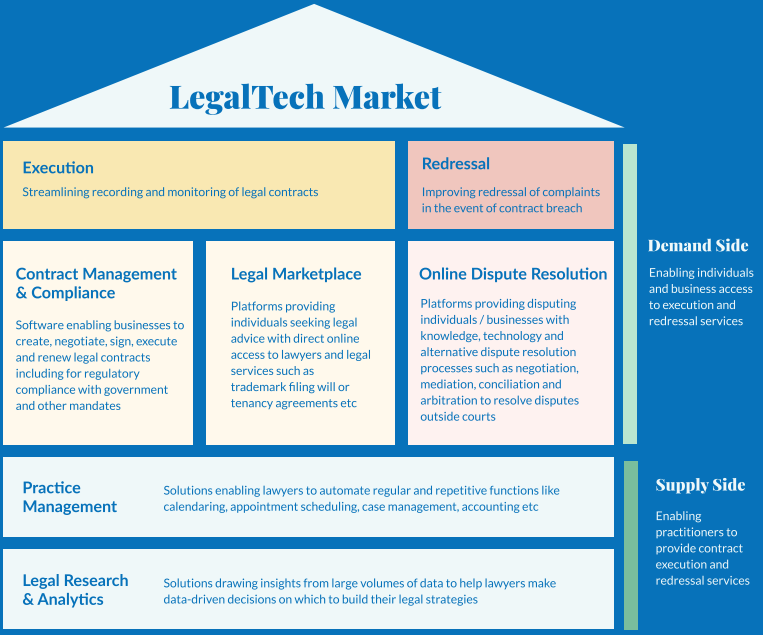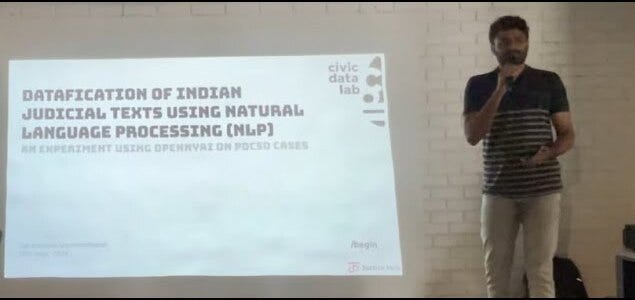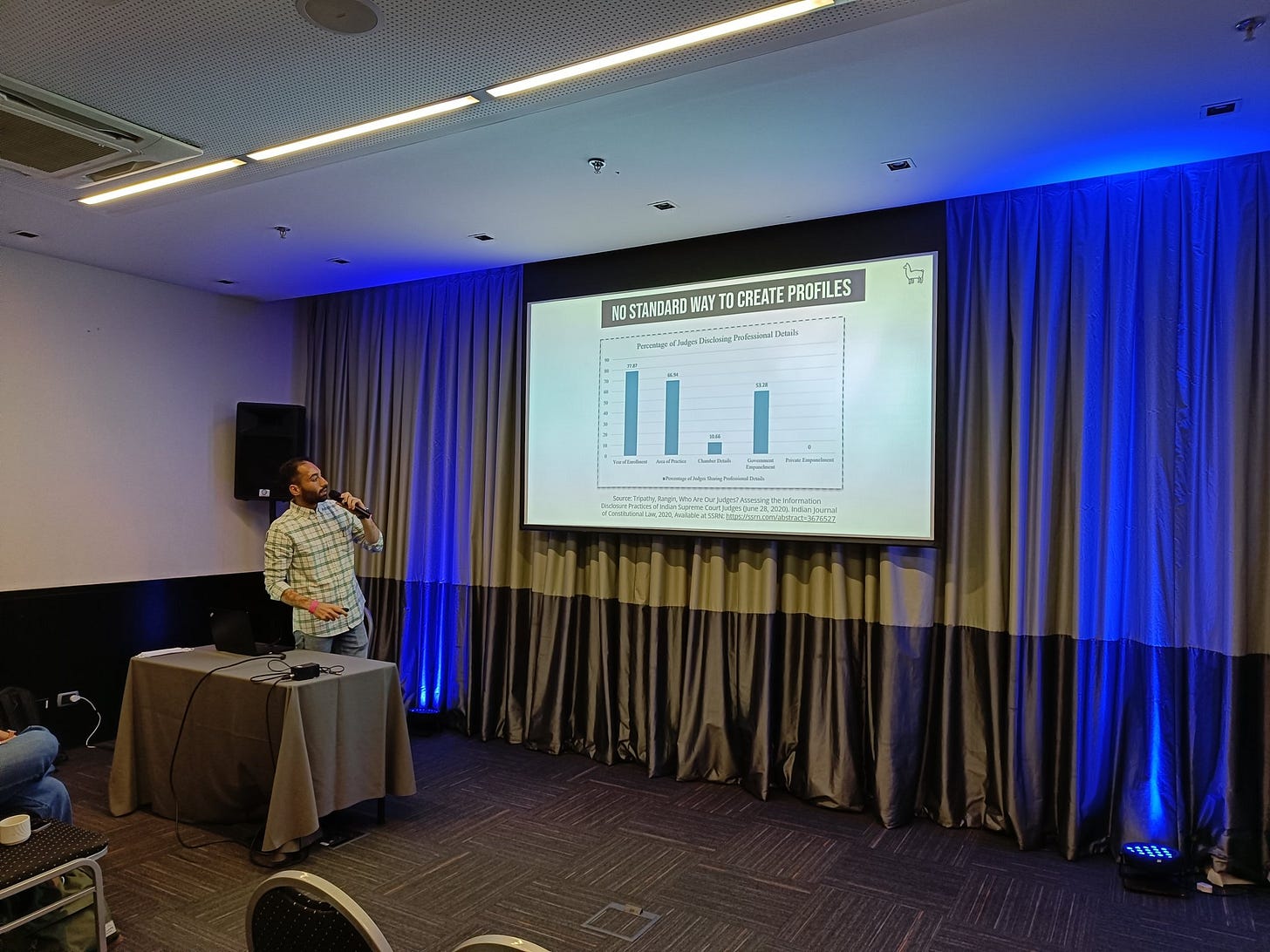In this newsletter, we talk about the use of Open Data in legal and judicial domains. We share such open datasets and analyses done on them through JusticeHub. But, beyond these analyses, what can be done with Open data in legal and judicial sectors? Who all can use these datasets to perform better research, understand the country’s legal-judicial sector better or become entrepreneurs by building tech solutions? This newsletter will answer these questions.
Journalists
Journalists have seen an immediate use of the datasets we share. Data Journalist Rukmini S used the data on High Court Judges made available on the Justice Hub(KHOJ) to write a story on low women representation at High Courts. Similarly, reporter Shradha Chettri reported on the high pendency of the POCSO cases in Delhi using the study done by HAQ: Centre for Child Rights and CivicDataLab which, along with the datasets, was made available on the JusticeHub (POCSO Act judgments data).
If you are a journalist, Open legal data will help you write nuanced stories on the state of law and justice in the country.
Academicians
Other social sciences like economics, sociology etc., have long adopted and developed empirical methods. But for legal studies, empirical methods are still in infancy - especially in India.
To change this, to improve empirical legal research (ELR) in India, we need datasets on legal and judicial sectors. While researchers can collect data on their own - it is a costly effort and can lead to duplication of efforts. Open datasets are thus the answer for propelling ELR in India.
Here are a few examples of ELR in India that leveraged open datasets.
Justice Delayed: A District-Wise Empirical Study on Indian Judiciary: In this paper, researcher Varsha Aithala et al., used the district courts' case pendency data available on the National Judicial Data Grid - combined with other socio-economic indicators - to explore if there is any relationship between socioeconomic development of a district and the case pendency in the court.
An Empirical Assessment of the Collegium’s impact on the Composition of the Indian Supreme Court: In this paper, Prof. Rangin Tripathy and Soumednra Dhanee studied data spanning 72 years to understand how the institution of collegium affected regional diversity, professional diversity and average judge tenures in the Supreme Court.
We have compiled a few more examples around ELR in this presentation. To learn more about working with data, do check the other learning modules.
Policy practitioners
For public policy practitioners, the law is a crucial tool to bring in reforms. And open data is a crucial leverage to analyse the functioning of law and influence it. One such exercise was taken up by the CivicDataLab and Internet Freedom Foundation to report on the unconstitutional use of Section 66-A of the Information Technology Act. Leveraging the open data, a platform called Zombie Tracker was created which tracked the continued use of Section 66-A, after it was declared unconstitutional. This dataset was used to file a plea in the Supreme Court, which then issued fresh directions against the unconstitutional use of the provision. This dataset can be accessed on JusticeHub.
Globally, policy practitioners are using such datasets for various ends. The Eviction Lab created datasets that policymakers use to understand the housing eviction crisis in the USA. Similarly, policy practitioners across the spectrum - from environmental policy to gender policy - have a lot to gain from open legal data in their research and advocacy efforts.
LegalTech
In 2021, Omidyar Network estimated a market of $380 Million for legal tech in India. Tech entrepreneurs across the world are using open legal data to build applications that assist lawyers in their practice. There are tech applications ranging from legal research to dispute resolution in the domain of LegalTech.

Most of these applications will be built on top of open legal datasets. If you are a tech entrepreneur or a lawyer seeking to become more productive - ask for more open legal datasets.
Citizens
The informed citizenry is quintessential for the functioning of democracy. Open legal data enables citizens to be informed and form opinions about important aspects of law and justice using reliable and easily accessible data. Open legal data create awareness among citizens about the working of the legal system. An informed citizen can hold the Governments or systems accountable, suggest policy recommendations and help in legal or policy reforms.
Activities at the JusticeHub
New datasets on the JusticeHub
The answers given by the Government during the Question hour session of the Parliament serve as an important source of Governmental information. This month, we have reviewed the questions put forward by the Members of Parliament in Lok Sabha and Rajya Sabha to various ministries during the recent budget session and curated the following datasets:
Datasets related to Law and Justice: (You can access these datasets from JusticeHub here: Link)
Data related to the social background (caste and gender) of the judges appointed to the High Courts since 2018
Data on the state of vacancies in various Courts and tribunals.
Status of Gram Nyayalayas established under the Gram Nyayalaya Act of 2008
The number of fast track courts functioning in every state and the expenditure met by the Government for the same
Datasets related to child rights protection: (You can access these datasets from JusticeHub here: Link)
Going forward, we would be hosting interesting and useful data sets relating to law and justice and child rights protection, curated from the Question Hour replies in every session of the Parliament.
JusticeHub at HydPy meetup
Sai Krishna presented the use of NLP in extracting data variables from Indian court judgments to the Python user community in Hyderabad. He discussed how NLP models can be used in creating datasets for empirical analysis of legal texts, the challenges involved in it and shared our current work on creating a child rights data ecosystem. You can access the talk here: [Link] and the presentation here: [Link]
JusticeHub at CSVConf
Apoorv Anand discussed the KHOJ dataset with the global open data community during the recently concluded CSVConf. In his talk, he shared the importance of the availability of public information on Judges and the current data gaps, how law students collaborated to curate this information and what is the way ahead for KHOJ. His presentation can be accessed here.
We are planning to resume our “Date with Data” series on Justice Hub. These are webinars that we conduct with people who actively work on legal and judicial data and do a deep dive on one of such datasets. Please reach out to us if you have any interesting data stories to share, for a date :)





